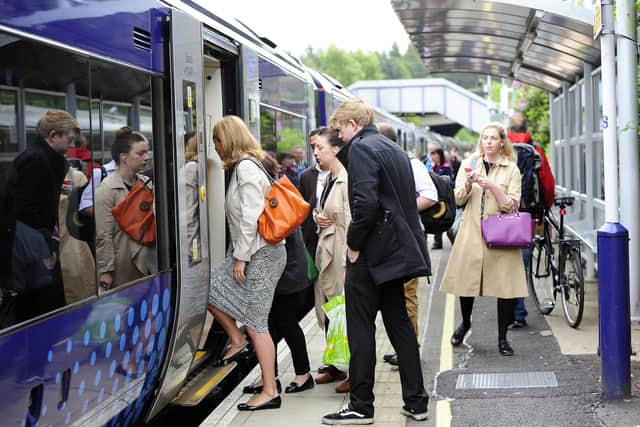Smart Money: Keen to get back to the office? How to reconnect without it costing the earth - Sam Richardson
Answer: Many of us will remember being sent home to work remotely at the start of the pandemic in 2020. Not many employers would have anticipated that, over two and a half years later, the debate about where we work would continue to rumble on.
Yet the fact remains that travelling into the office – whether it’s by rail or by car – doesn’t come cheap. Analysis by the Office for Rail and Road found out that in the 26 years since the privatisation of the railways, ticket prices have increased by the Retail Prices Index (RPI) on 10 occasions, by RPI plus one percentage point on 11 occasions, and by RPI minus one percentage point on five occasions. When it comes to driving, filling up at the pumps has become eye-wateringly expensive.
Advertisement
Hide AdAdvertisement
Hide AdSo how can you reconnect with colleagues, or just escape the house for a day or two a week, without it costing the earth?


You could speak to your employer to see if you can modify your hours so that you’re not travelling at peak times.
Another relatively simple solution is to buy a railcard, if you’re eligible. For those aged 16-25, 26-30, and 60 or over, you get a third off almost all train journeys. With the price of these coming in at £30 for a year, it’s more than likely you’ll make your money back within a few journeys.
If you don’t fall within those age ranges, buying flexi train tickets, which allow eight days of unlimited travel in 28 days, can save part-time commuters hundreds a year.
Which? crunched the numbers and found that commuting from Bromsgrove to Birmingham New Street, for example, for two days a week costs £729.60 over the year with flexi tickets. That’s 46 per cent less than a £1,344 annual season ticket.
Most train companies release a set number of reduced-price “Advance” tickets up to 12 weeks before – and some go on sale even earlier. Set up alerts through a train operator to be emailed when advance tickets go on sale for a particular route. Just bear in mind that advance tickets are usually non-refundable.
If you have to drive into work, then you should be making sure you aren’t paying too much for car insurance. The price you’re offered when the time comes to renew is unlikely to be the best option on the market, so it’s well worth taking the time to compare deals.
Which? research has found that insurers remain open to haggling, which could lead to decent savings. When we surveyed Which? members with car insurance, 48 per cent of those who discussed their renewal quote with their insurer were able to get the price reduced, by an average of £56.
Advertisement
Hide AdAdvertisement
Hide AdPrice comparison websites such as comparethemarket.com can also help you find cheaper petrol stations near you. Using a cashback credit card to pay for your fuel (and train tickets) will further cut costs; just make sure you repay the balance every month. The American Express Platinum Cashback and Platinum Cashback Everyday cards currently offer 5 per cent cashback for the first three months, then around 0.5-1 per cent.
The most economical way to commute into work is to walk or cycle – but not everybody has the luxury (or bravery) to be able to do that. Those who can cycle should check whether their employer has a cycle to work scheme (most do), which, depending on your salary could save you 40 per cent on the value of a bike.
Sam Richardson is deputy editor of Which? Money
Comments
Want to join the conversation? Please or to comment on this article.